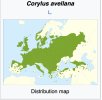Check No. 23: "palo" means tree in Costa Rica, Honduras, México, Nicaragua, Puerto Rico and Dominican Republic.
And No. 24: "palo" means shot of drink in Cuba, Puerto Rico, Dominican Republic & Venezuela.
https://dle.rae.es/palo
RAE doesn't permit or ban words. They simply document what is being used and make recommendations for better usage of the language.
The problem with Latinx and Amig@ is that they cannot be pronounced, they only work in writing (and I don't see why we need the word "cuerpa"

)
In Spain it doesn't really mean anything. "Coge un palo", on the other hand, means "grab a stick". A perfectly safe thing to say.
Not in Spain. "Una actor" is just incorrect because you're pairing a feminine article with a masculine noun. "Una actora" means something else, but someone else has already explained it.
There is certainly a movement for a more gender neutral language in Spanish, but I haven't heard of female actors being referred to as "actores" in Spain. As far as I'm aware, they still go by "actrices".
Regarding new more gender neutral plural forms, it's work in progress

There isn't a simple solution that works for all nouns, so people are trying different things. In many cases, the solution is to just say both "actores y actrices", sometimes, another word is used ("la ciudadanía" instead of "los ciudadanos"). Sometimes a new ending in -e is used to include non-binary (todos, todas y todes)

Not an easy issue!


















